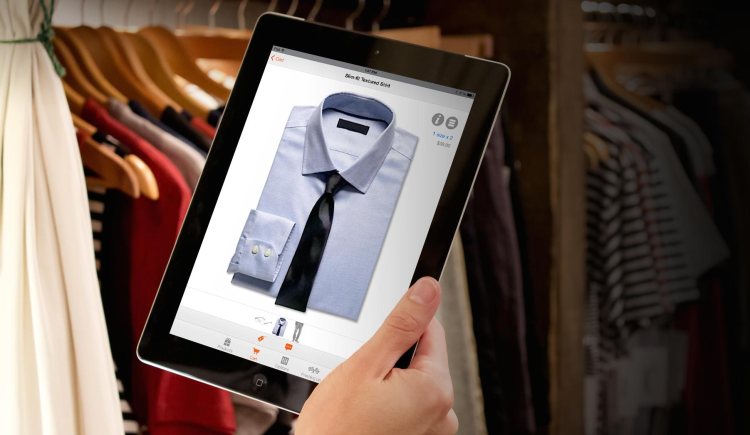Seasoned designer Keith Harper just left a 10-year run in consumer design, working on services like TruBalance, to dive into the enterprise.
 Harper is a fresh hire for Handshake, a New York startup that provides mobile order-management for sales reps (as B2B as a startup can get). VentureBeat sat down with Harper ahead of our Mobile Summit conference for some insight into the evolution of enterprise mobile app design.
Harper is a fresh hire for Handshake, a New York startup that provides mobile order-management for sales reps (as B2B as a startup can get). VentureBeat sat down with Harper ahead of our Mobile Summit conference for some insight into the evolution of enterprise mobile app design.
We and our Mobile Summit speakers will have lots more to say on the fabric of enterprise apps at the event. The Summit is an invite-only event, so be sure to request your invitation soon!
VentureBeat: What’s the difference between consumer and enterprise mobile apps?
Keith Harper: Most B2B mobile apps are productivity-focused. There’s not as much emotional design applied to the way that apps are developed. Broadly, B2B is just more utilitarian.
VentureBeat: Should companies bring more consumer design trends to B2B apps?
Harper: Definitely. It would be great to see more thoughtful design applied to B2B apps.
I think that what really matters is helping someone complete a task more efficiently. It’s important to understand the user’s needs and to craft an experience that helps them do what they’re doing quickly, efficiently, and ideally with a little bit of pleasure. It’s maybe not totally necessary, but it’s a nice little layer you can add on.
VentureBeat: What are some of the best design-centric companies in B2B?
Harper: Stripe is a good one. Stripe and Square. They seem to get the importance of good design, and it really shows, because I actually enjoy using their services. They both make it really easy to use their products. Another good example is MailChimp. Individuals can use it, but it’s targeted at businesses and sole proprietors. They’ve got a really great brand, and they inject a little humor into it, too.
Harvest is pretty good example. I worked there for a little in 2010, so I’m a little biased.
VentureBeat: How do design trends effect enterprise mobile apps?
Harper: You want to come up with innovative, new designs that delight people. But at the same time, you have to balance that with the question, “Will this help people get whatever task they’re doing done quicker?” With B2B apps, you need to balance that a little more versus with a consumer photo sharing app. You have to be more pragmatic. You don’t want to make users learn a new gesture.
VentureBeat: It seems like you need to be more cautious with B2B. Do you feel pressure to follow only existing design standards?
Harper: The best mobile experiences are made by companies that take a little risk. You don’t want to be too cautious, but you have to pick and choose where you try something new. It is kind of like picking your battles.
VentreBeat: Will enterprise design ever influence consumer apps?
Harper: I think you’ll probably always see more experimentation in the consumer space. Especially if you’re creating an app that the average consumer can use for free — you can afford to change things and experiment. When you’re working with a larger enterprise customer, you may need to be more conscious.
Or maybe you just need to do a little bit more testing and involve them in the process. We’ve done that with a lot of our customers by involving them in minimum viable products (MVPs). That’s the trick for enterprise customers; you need to involve them.
VentureBeat: Can you share some of your plans for Handshake?
Harper: The app as it stands now uses all stock, out-of-the-box user interface conventions. There are definitely some UX improvements that we know we’re going to make. It’s one of these things where you have to build an MVP. We want to add an extra level of polish, and we’re ready to take it to the next level.
VentureBeat's mission is to be a digital town square for technical decision-makers to gain knowledge about transformative enterprise technology and transact. Learn More

